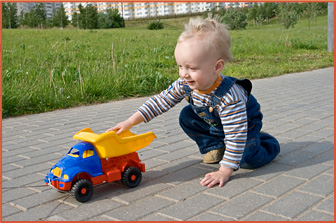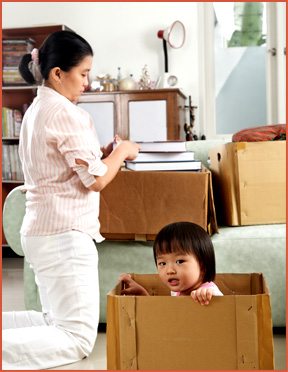











Ways to Support School Readiness through Play
- School readiness is comprised of many different and interconnected factors. We can support children’s school readiness by encouraging children to explore the world around them through play. We can also support the development of public policies that ensure schools are ready for children, and communities support healthy child development. The goals of healthy public policies should be:
-
All children have access to high quality early learning and care environments with highly qualified professionals
- All families have access to a wide range of social supports within their community, such as dental and medical care, child and family programs, and more. The need is especially acute for families who live in poverty or families who are unfamiliar with the resources that may be available to them
- Professionals working with children from zero to six continue to seek out free or subsidized programs, resources or services to support children and families in need
-
Schools are part of the community hub that supports healthy child development and each child’s transition to school
-
Schools are ready for all children and continue to support healthy child development of the whole child.
-
Here are some strategies how professionals can support and promote school readiness:
- Build a strong rapport with caregivers
- Encourage positive adult-child interactions and relationships
- Promote the creation of a nurturing, rich, and stimulating early learning environment for children and families
- Plan activities to involve caregivers regularly in their child’s learning and development
- Lend toys, books, and videos to families; work to establish toy-lending libraries in your community
- Continue to provide outreach to families in your community, especially to those who may be harder to reach; support and refer to family home visiting programs such as Healthy Babies Healthy Children
- Encourage caregivers to read to their children on a daily basis; encourage caregivers to listen to children read to them on a daily basis (even if it is “pretend” reading)
- Encourage caregivers to set up a centre in their home with materials that promote school readiness through various types of play
- Encourage participation in and provide information about:
- high quality early learning and care programs
- parenting programs
- public library programs
- parent support networks and programs
- family literacy programs
- prenatal care programs
- informal and formal networks and playgroups

- Continue to support adult and family literacy, as well as English-language learning for newcomers to Canada (e.g., LINC programs – Language Instruction for Newcomers to Canada)
- Sign up for the Welcome to Kindergarten program (www.thelearningpartnership.ca under the Programs tab), which provides a literacy resources bag and workshop for caregivers to help support readiness for school
- Create partnerships with schools, early years and early learning centres, community and health care agencies and neighbourhood centres to help provide supports for and resources about:
- prenatal care
- mental health care
- nutrition and food banks
- vision, dental, and medical care
- health and immunizations
- emotional/behavioural concerns
- shelters
- subsidized housing
- early intervention
- employment or job retraining
- Plan or participate in family resource fairs
- Promote programs that provide universal screening such as hearing and vision screening programs
- Ensure that resources provided to families are culturally sensitive and when possible, translate the resources or provide translation services for families
- Help families to make referrals for additional services, if help is needed with the process
- Promote the availability of workshops and training programs in your community for caregivers and service providers
- Ensure a constant flow of communication with caregivers through the use of discussions, newsletters, brochures, email, or other ways to keep them informed
- In the absence of funds, seek out donations or sponsorship to help fund some of your community initiatives (e.g., breakfast programs)
- Encourage play at home and in early learning and care settings in your community
- Ensure your community provides safe spaces and opportunities for play
(Florida Head Start State Collaboration Office, 2002; Maryland State Department of
Education, 2002; Office of Educational Research and Improvement, 2002).
- Professionals can encourage families to promote healthy child development that supports readiness to learn in all children from birth on by using not the three “Rs” of “reading writing and ‘rythmetic” but the five “Rs” of early playful learning.
- Reading together
- Rhyming, playing, singing and physical closeness
- Routines and regular times for eating, playing and sleeping
- Rewarding children with praise for any success
- Reciprocal, nurturing relationships.
(High, 2008).




